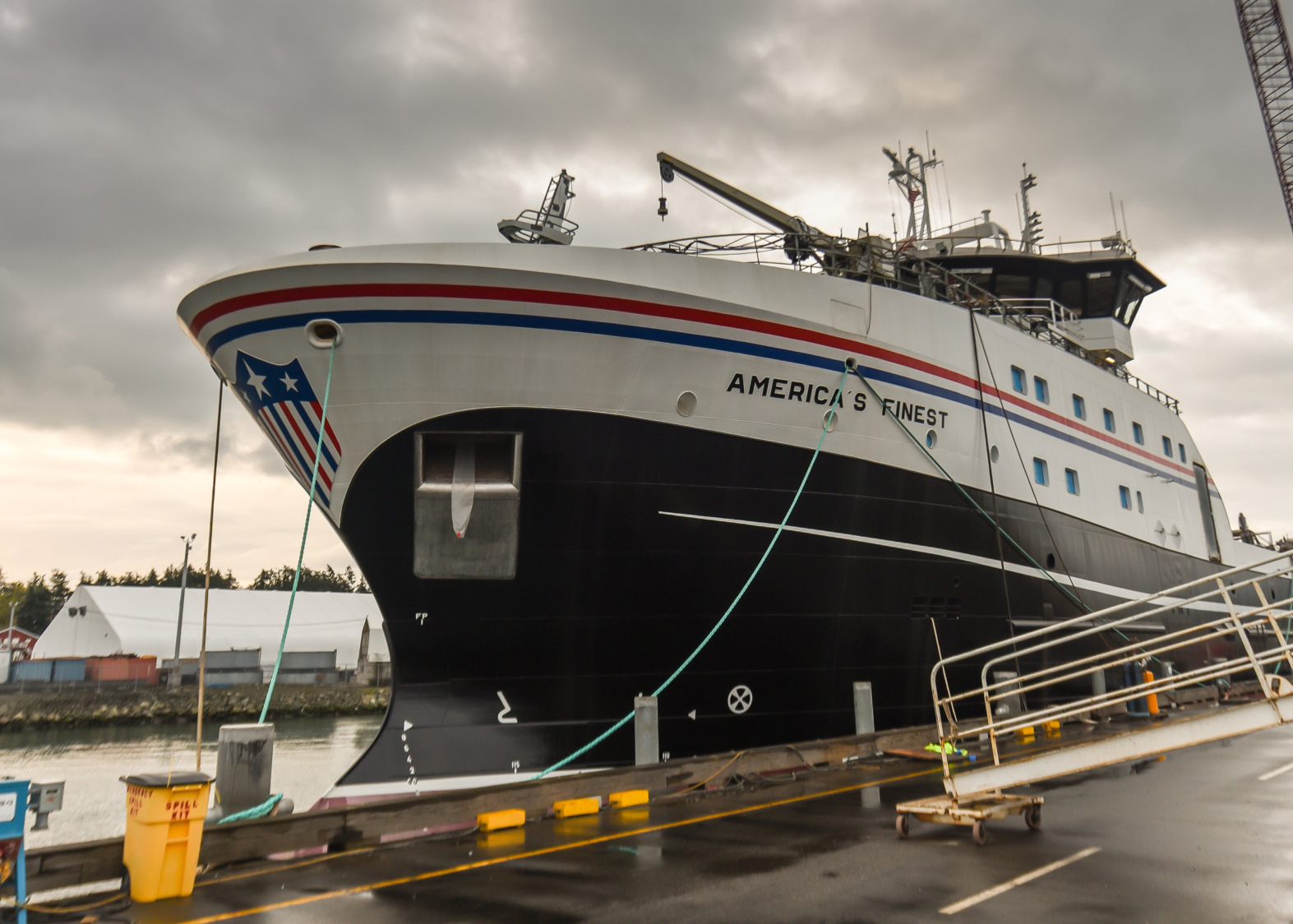The U.S. House of Representatives unanimously passed the Coast Guard Reauthorization Act on Tuesday, Nov. 27, sending the bill to President Trump for a signature.
Included in the bill is the long-awaited Jones Act waiver for America’s Finest, a catcher-processor built by Dakota Creek Industries in Anacortes, Wash. Dakota Creek self-reported that it had as much as 10 percent of the vessel’s steel bent in Holland, a violation of the Jones Act’s 1.5 percent maximum for foreign-processed steel in U.S. fishing vessels.
“Finally a win for Dakota Creek and the hardworking men and women who build fishing, Navy, and other vessels in our state,” said Sen. Maria Cantwell (D-Wash.), who has worked for more than a year to secure the waiver.
“Securing a Jones Act solution for Dakota Creek Industries has been a long-fought battle,” said Rep. Rick Larsen (D-Wash.). “I appreciate the coordination with Sen. Cantwell, Sen. Sullivan and Rep. Don Young as we have worked nonstop to find avenues to save hundreds of jobs on the line.”
The 264-foot, $75 million trawler was designed by a Norwegian company for Kirkland, Wash.-based fishing company Fishermen’s Finest. Norwegian hull designs require a steel-bending process that is less expensive to have done overseas, where the technique and technology is more common.
The waiver allows the U.S. Coast Guard 30 days from the day the bill is enacted to conduct an investigation into the construction of the America’s Finest. Should the investigation uncover intentional violations of the Jones Act, the waiver would be dismissed.
It also restricts the amount of fish the vessel and the company can harvest and process for the next six years. One of the biggest objections to the waiver came in March from the mayor of Dutch Harbor/Unalaska, Alaska, who hoped to protect shoreside fishing infrastructure from the threat of increased offshore processing.
The America’s Finest is an Amendment 80 replacement vessel and slated as of now to replace one of Fishermen’s Finest’s vessels, the American No. 1. The replaced trawler could be used as a mothership for offshore processing, which could significantly reduce the volume of groundfish landed and processed onshore.
The bill also extends a 2008 exemption that waives incidental discharge permitting requirements for fishing vessel owners.
“Fishermen are key drivers of Washington state’s growing economy. We need their boats out fishing, not bogged down by regulations meant for large vessels like oil tankers,” said Cantwell.
The Senate voted 94-6 to pass the U.S. Coast Guard authorization bill on Nov. 14. The president is expected to sign it by the end of the year.







